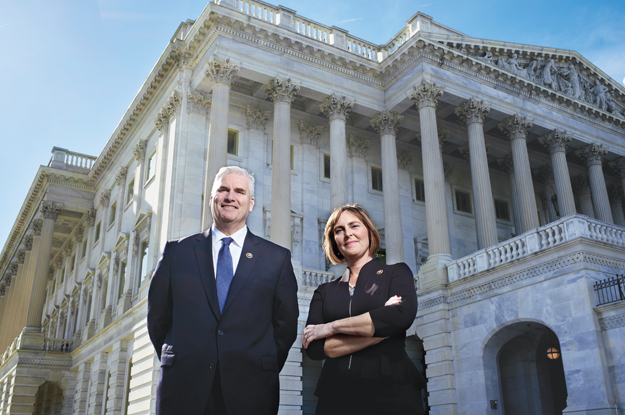In the new issue of Americas Quarterly, we asked people, “What would you tell the next U.S. president about Latin America?” To see other authors’ responses, click here.
Dear Mister / Madam President,
Stepping off the plane in Havana carries with it a touch of history. But being part of the bipartisan congressional delegation that accompanied the presidential visit to Havana last March was different. We have traveled together to the island several times, viewing it from opposing sides of the aisle but united in our vision of creating better opportunities for both the Cuban and American people by lift ing the trade embargo. The trip was historic — yes — but more so it elevated our resolve to continue to work on normalizing our trade and travel relations with Cuba.
Since the process of U.S. -Cuba normalization began in December 2014, there has been steady progress in a number of key areas. This includes working to protect the environment and marine life; creating more avenues for credit, financing and banking; increasing remittance flows; allowing U.S. companies to have a presence in Cuba; paving the way for direct mail service; even allowing an American company to directly produce and sell tractors to Cuban farmers. There has been tremendous movement.
This progress, however, is not reflected in our U.S. trade embargo and antiquated travel ban. Despite an overwhelming majority of Americans supporting the normalization of diplomatic, trade and travel relations with Cuba, Congress lags behind, mired in ideological squabbles. However, this is changing quickly. Indeed, we created the Congressional Cuba Working Group to highlight the bipartisan, broad base of support within Congress that reflects the voices of the American people. Since its inception in December 2015, we’ve worked across geographic and party lines, with industry and advocacy groups and the administration to garner support, promote policy changes, and begin to move legislation through Congress.
Support in Congress continues to grow as congressional leaders hear from their constituents about the importance of a new and brighter future with Cuba. The excitement from people across the country working toward a new bilateral relationship is spreading.
Yet, while great strides have been made in our bilateral relationship, troubling issues remain in Cuba, such as a lack of human rights and representational government. Instability in the aftermath of the Cuban Revolution and the successive actions by the Castros sent Cubans fleeing, and we continue to see thousands of Cubans take tremendous risks to leave the island in search of a better life. Unsurprisingly, this path toward normalization causes some in the U.S. to view warming relations as a way of legitimizing the Castro regime’s repression. Yet we believe that by engaging with Cuba and supporting the people of that country, we can help create a more prosperous future for both Cubans and Americans.
And while the embargo fight will continue on Capitol Hill, there are certain things that you can do to as president to continue on this path of normalization.
Most importantly for the Cuban people, we believe you can continue to use your executive authority to support Cuba’s small and growing non-state sector. The number of cuentapropistas (entrepreneurs) has exploded from 140,000 in 2009 to more than 500,000 in 2015. Under updated U.S. regulations, Cuban entrepreneurs can interact much more freely with U.S. counterparts and access the much-needed U.S. market for importing and exporting goods. These measures should continue to be supported and built upon so a growing number of Cubans can determine their own destiny by starting their own businesses, increasing their self-reliance and economic independence. We additionally would like to see support for a strong and independent legal system within Cuba that will protect property and human rights.
Further, as our two countries continue to build upon our new relationship, you must enter every negotiation with understanding and respect. The Cuban economic and political system may not directly reflect ours, and progress may be slower than we would like it to be. However, every day that we make progress, we move further away from the outdated policies of the past and toward more freedoms for the Cuban people.
This relationship with Cuba will require both legislative cooperation and presidential leadership.
For our part, we will continue to work to build a foundation that benefits both the Cuban and the American people.
–
U.S. Representative Kathy Castor, a Democrat, is the congresswoman for Florida’s 14th congressional district.
U.S. Representative Tom Emmer, a Republican, is the congressman for Minnesota’s 6th congressional district.





